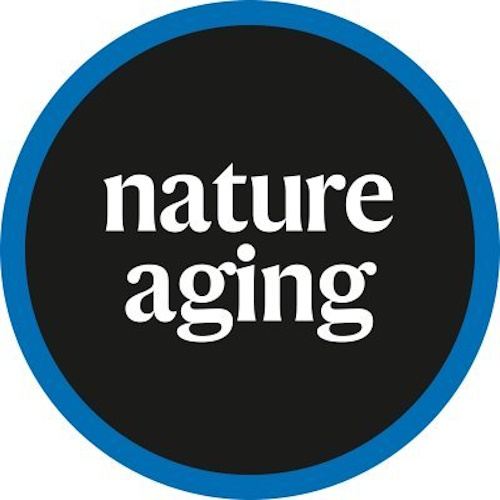Ageing is not just a matter of counting birthdays. Science now tracks how fast we age biologically, and this can vary widely between people. Some individuals reach their seventies with minimal decline, while others face chronic disease decades earlier. This difference has led researchers to search for biological markers that can capture the true pace of ageing.
One promising tool is the epigenetic clock. These DNA-based clocks estimate biological ageing through patterns of methylation—chemical changes that regulate gene activity. Unlike wrinkles or gray hair, these changes occur at the molecular level, making them invisible to the naked eye. But their impact can be profound, predicting disease risk and lifespan.
The DO-HEALTH trial has taken these clocks a step further. By studying older adults over three years, the researchers aimed to see if simple lifestyle interventions could actually slow the ticking of these internal clocks.
Understanding Epigenetic Clocks
Epigenetic clocks use data from across the genome to estimate either biological age or the pace of ageing. The study evaluated four such clocks: PhenoAge, GrimAge, GrimAge2, and DunedinPACE. Each offers a unique lens on ageing. PhenoAge and GrimAge assess risk based on blood chemistry and mortality data. DunedinPACE measures how fast a person is ageing biologically.
Earlier studies hinted that omega-3 fatty acids, vitamin D, and physical activity might influence these clocks. But large-scale clinical trials were missing. That gap prompted the DO-HEALTH team to test the effects of these interventions in a randomised, controlled setting. Their analysis involved 777 older adults from Switzerland, each monitored for three years.
The study’s setup followed a 2×2×2 factorial design. Participants received one or more interventions: vitamin D (2,000 IU/day), omega-3 (1 g/day), and a simple home-based exercise routine (SHEP). All participants were active, mobile, and lived independently at the start of the trial.
Omega-3 Shows a Clear Benefit
When the results came in, omega-3 stood out. It significantly slowed ageing as measured by three clocks: PhenoAge, GrimAge2, and DunedinPACE. These findings suggest omega-3 has a modest but consistent effect on biological ageing. The change was small—equivalent to slowing ageing by about three months over three years—but statistically meaningful.
Neither vitamin D nor SHEP showed significant effects alone. However, their story changed when combined with omega-3. For PhenoAge in particular, these combinations yielded stronger results than any intervention alone. The researchers describe this as an “additive effect,” where the benefits of combined treatments exceed individual ones.
Notably, the first-generation clocks (Horvath and Hannum) did not respond to the interventions. This reinforces the idea that newer clocks are more sensitive to lifestyle changes and better suited for clinical trials targeting ageing.
Molecular Markers Reflect Combination Gains
The study also explored changes in plasma protein biomarkers estimated through DNA methylation. These markers, including PAI-1, TIMP-1, and GDF-15, are associated with inflammation, clotting, and cell repair. Omega-3 alone influenced three of these markers. When paired with vitamin D or exercise, the effects were even stronger.
Participants with low starting levels of omega-3 in their blood experienced the greatest benefit. This points toward a potential for personalised ageing strategies. The data hint that nutritional status at baseline can shape how the body responds to an intervention.
Women and those with lower levels of DHA and EPA—the two main omega-3 fats—also showed stronger responses. These subgroup differences could guide future studies and help tailor interventions for specific populations.
Comparing to Caloric Restriction Trials
The DO-HEALTH findings align with recent data from the CALERIE trial. That study tested caloric restriction in middle-aged adults and reported slower ageing using the DunedinPACE clock. However, it did not impact PhenoAge or GrimAge. In contrast, DO-HEALTH found benefits across three of four clocks, especially with omega-3.
That comparison is important. It suggests that different lifestyle changes may act through different biological pathways. Omega-3 might influence ageing through immune modulation and lipid metabolism, while caloric restriction could affect energy balance and oxidative stress.
The convergence of results from both trials strengthens the case for biological age as a modifiable trait. It also highlights the usefulness of epigenetic clocks in evaluating anti-ageing strategies.
Methodological Strengths and Challenges
The DO-HEALTH team used several methods to improve data reliability. They adopted updated versions of the clocks with improved technical stability. They standardised blood draws to morning hours and fasting states. They also adjusted for age, sex, BMI, and site location in their analysis.
However, the study had only two measurement points—baseline and year three. More time points would have reduced error. Also, the sample was healthier and more active than the general older adult population, which may have influenced results.
Still, the findings provide conservative estimates. If anything, the true impact might be slightly stronger than observed. Even small shifts in biological age could lead to major benefits at the population level if applied widely.
Case for Broader Use of Epigenetic Measures
DO-HEALTH supports the use of biological ageing measures in clinical trials. Clocks like PhenoAge and GrimAge can detect subtle effects that traditional outcomes might miss. They also capture whole-body changes rather than focusing on a single organ or symptom.
Importantly, these clocks are not tied to any one disease. That makes them suitable for studying general healthspan, the period of life spent in good health. As more trials adopt these tools, we can compare different strategies and fine-tune how we approach ageing prevention.
The study also reminds us that blood biomarkers change throughout the day. A recent publication reported higher epigenetic age at noon than midnight. DO-HEALTH controlled for this by collecting samples in the morning.
Future Directions and Open Questions
This is not the final word. DO-HEALTH collected samples at other time points and from participants in four other countries. Those data remain to be analysed. The current findings focus only on the Swiss subset. Still, they provide a strong foundation.
Key questions remain. Will these molecular changes lead to longer life or fewer diseases? How long do the effects last after the intervention stops? And can we identify who benefits most before treatment begins?
The answers will shape future trials. Personalised interventions based on baseline nutritional status or genetic traits may become common. Ageing could one day be managed like cholesterol or blood pressure—with regular monitoring and tailored care.
Toward a Healthier Ageing Future
The DO-HEALTH study makes a compelling case for using simple lifestyle interventions to influence biological ageing. Omega-3 fatty acids, especially when combined with vitamin D and exercise, appear to slow down the epigenetic clock. These changes are small but meaningful.
As research expands, ageing may become not just a fate to accept, but a process we can shape. For now, these findings give us a glimpse of what’s possible—a future where ageing is not just longer, but better.
The study is published in the journal Nature Aging. It was led by Heike A. Bischoff-Ferrari from University of Zurich.








